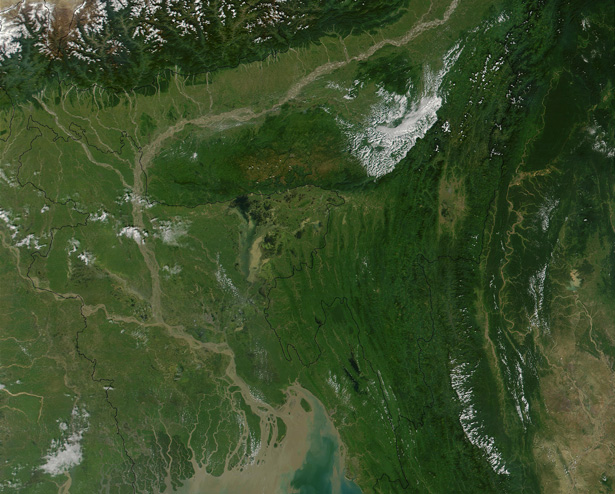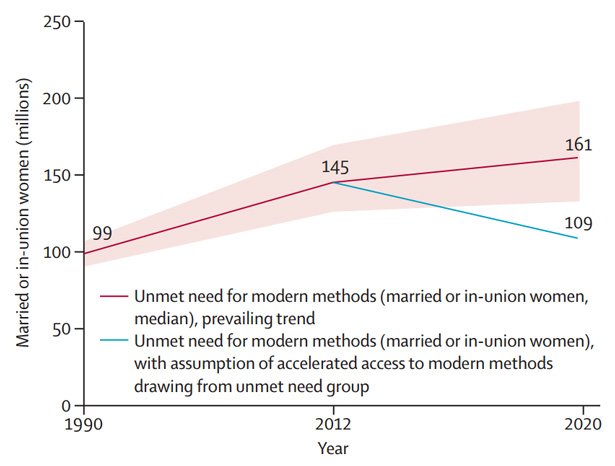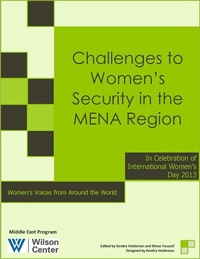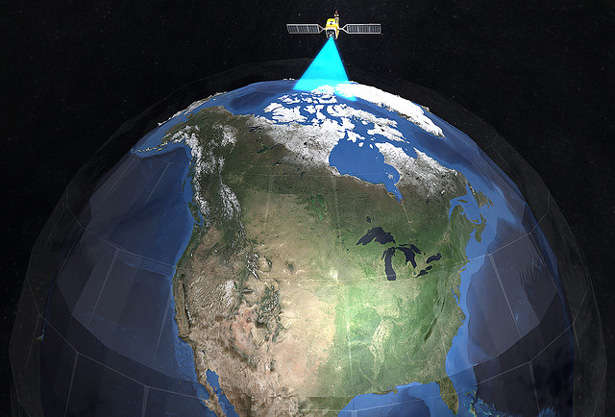-
Jay Gribble, Behind the Numbers
Four Steps to Thailand’s Demographic Dividend
›April 4, 2013 // By Wilson Center Staff
Thailand often is held up as a model of success for its efforts in family planning, but it’s amazing how quickly the country has transformed from rural and very poor to the modern economic powerhouse it is today in a matter of a few decades. Yet Dr. Kosit Panpiemras, former minister of finance and industry of Thailand, laid out the story of Thailand’s success in four succinct points. It wasn’t easy for Thailand to accomplish its goals, but the policies and investments the country made were strategic and targeted.
-
Stewart M. Patrick, The Internationalist
Environmental Security Goes Mainstream: Natural Resources and National Interests
›March 29, 2013 // By Wilson Center StaffThe original version of this article, by Stewart M. Patrick, appeared on the Council on Foreign Relations’ The Internationalist blog.
Not long ago, concerns about environmental degradation were marginal in U.S. national security deliberations. What a difference climate change has made. Foreign policy officials and experts are starting to recognize profound linkages between planetary health, economic prosperity, and international security. These connections were on full view last Wednesday, when the Council on Foreign Relations (CFR) teamed up with Conservation International (CI) to convene a symposium, “Global Resources, the U.S. Economy, and National Security.”
-
Carl Gierstorfer, Pulitzer Center on Crisis Reporting
River Erosion a Push Factor for India’s Bride Trafficking
›March 27, 2013 // By Wilson Center Staff
The original version of this article, by Carl Gierstorfer, appeared on the Pulitzer Center on Crisis Reporting.
After spending almost two weeks in India’s northwestern state of Haryana, the destination for many trafficked brides, we decided to head to the source area. It lies two hours by plane to the east, in the lush green hills of Assam. Here, as well as in the surrounding states of West Bengal, Bihar, and Nagaland, many women are trafficked from the towns and villages to live the lives of slaves more than a thousand miles away from their homes.
We wanted to find out why.
-
Kaja Jurczynska, Population Action International
222 Million vs. 233 Million: Measuring Global Unmet Need for Contraception
›March 21, 2013 // By Wilson Center Staff
Last week, a new study out of The Lancet projected that in 2015, 233 million married or in-union women worldwide will have an unmet need for modern family planning.
-
Jason Beaubien, Shots
Power Shift Under Way As Middle Class Expands In Developing World
›March 19, 2013 // By Wilson Center Staff
The original version of this article, by Jason Beaubien, appeared on NPR’s health blog, Shots.
“The meek shall inherit the earth” – that seems to be the latest message from the United Nations Development Program.
-
After the Arab Spring, Challenges Intensify for Women in the Middle East and North Africa
›
Excerpted below is the introduction, by Haleh Esfandiari, to Challenges to Women’s Security in the MENA Region. The full report is available for download from the Wilson Center’s Middle East Program.
On the occasion of International Women’s Day 2013, the Middle East Program at the Wilson Center invited a cross-section of women activists, politicians, academics, and entrepreneurs to give us their views on the challenges women face to their security. This publication, “Challenges to Women’s Security in the MENA Region,” includes pieces from 42 women from 20 countries, including the United States, Malaysia, Indonesia, and countries in the Middle East and North Africa (MENA) shared with us their concerns, disappointments, and hopes for women in the region.
-
Rebecca Fishman, WASH Advocates
New Water and Women’s Health Series by MHTF and WASH Advocates
›
The original version of this article, by Rebecca Fishman, appeared on the WASH Advocates and Maternal Health Task Force blogs.
Access to clean water is not only one of the world’s most urgent health issues, but it is also a key to boosting progress in developing countries. Women and children are disproportionately affected by inadequate water, sanitation, and hygiene (WASH), and they shoulder the largest burden in collecting drinking water. What is more, when the needs of women and girls are not taken into account, the effects are felt far and wide, reaching across the education, health, security, and economic sectors. On the other hand, improving WASH can have positive impacts throughout a girl’s life and can even extend across generations. As we know, when women thrive, so do their communities.
-
Andrew Freedman, Climate Central
Sequestration May Degrade Weather, Climate Forecasting
›February 28, 2013 // By Wilson Center Staff
The original version of this article, by Andrew Freedman, appeared on Climate Central.
Across-the-board federal spending cuts that are scheduled to go into effect starting on March 1 are likely to cause further delays to weather and climate satellite programs, and may degrade the government’s ability to issue timely and accurate early warnings of extreme weather and climate events, according to federal officials and atmospheric scientists.
Showing posts by Wilson Center Staff.










